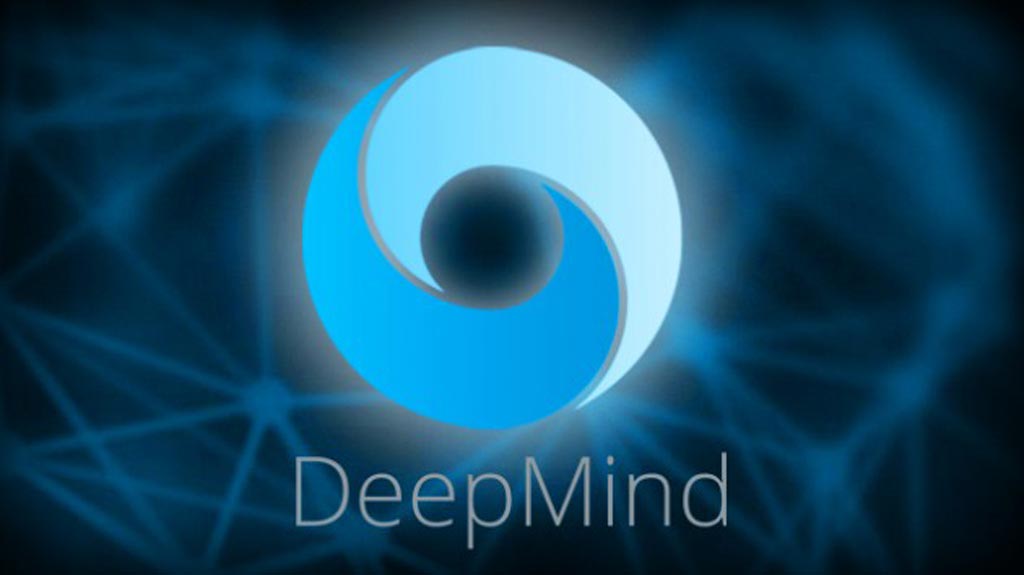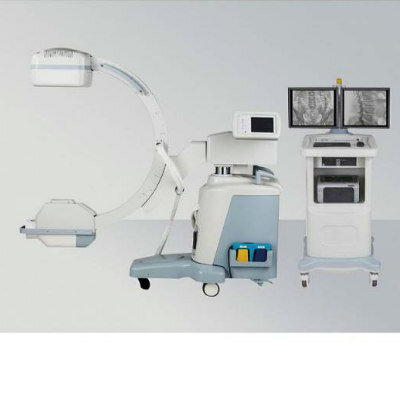DeepMind Masters Retinal Disease Detection
|
By MedImaging International staff writers Posted on 27 Aug 2018 |

Image: Google DeepMind is exploring new frontiers in medical diagnostics (Photo courtesy of Google).
Artificial intelligence (AI) can accurately detect 53 kinds of sight-threatening retinopathy at least as effectively as experts, claims a new study.
Researchers at Google DeepMind (London, United Kingdom), Moorfields Eye Hospital (London, United Kingdom), and University College London (UCL, United Kingdom), first trained a deep learning AI algorithm to spot ten different features of eye disease, based on 14,884 three-dimensional (3D), high-definition optical coherence tomography (OCT) retinal scans. The researchers then gathered another 997 scans and asked DeepMind and eight consultant ophthalmologists and specialist optometrists to recommend urgent referral, semi-urgent referral, routine referral, or observation for each scan.
In the most crucial category, urgent referral, DeepMind matched the two top retina specialists and had a significantly higher performance rate than the other two specialists and all four optometrists. No cases of urgent referral were missed by the system. When all referral types were taken into consideration, computer error rate was 5.5%, comparable to the error rate for the two best retina specialists (6.7% and 6.8%) and significantly better than the other six experts. When the clinicians had access to the OCT scans, fundus images, and patient summary notes, five had similar accuracy to the AI system, whereas the system still outperformed the other three. The study was published on August 13, 2018, in Nature Medicine.
“We set up DeepMind because we wanted to use AI to help solve some of society's biggest challenges, and diabetic retinopathy is the fastest growing cause of blindness worldwide. There are more than 350 million sufferers across the planet,” said co-senior study author Mustafa Suleyman, co-founder of DeepMind. “Detecting eye diseases as early as possible gives patients the best possible chance of getting the right treatments. I really believe that one day this work will be a great benefit to patients across the NHS.”
“Our research with DeepMind has the potential to revolutionize the way professionals carry out eye tests, and could lead to earlier detection and treatment of common eye diseases such as age-related macular degeneration,” said Professor Sir Peng Tee Khaw, MD, director of the Biomedical Research Centre in Ophthalmology at Moorfields Eye Hospital. “With sight loss predicted to double by the year 2050, it is vital we explore the use of cutting-edge technology to prevent eye disease.”
DeepMind is a British artificial intelligence company founded in September 2010 which created a neural network that learns how to play video games in a fashion similar to that of humans, as well as a neural network that may be able to access an external memory like a conventional Turing machine, resulting in a computer that mimics the short-term memory of the human brain; it was acquired by Google in 2014.
Related Links:
Google DeepMind
Moorfields Eye Hospital
University College London
Researchers at Google DeepMind (London, United Kingdom), Moorfields Eye Hospital (London, United Kingdom), and University College London (UCL, United Kingdom), first trained a deep learning AI algorithm to spot ten different features of eye disease, based on 14,884 three-dimensional (3D), high-definition optical coherence tomography (OCT) retinal scans. The researchers then gathered another 997 scans and asked DeepMind and eight consultant ophthalmologists and specialist optometrists to recommend urgent referral, semi-urgent referral, routine referral, or observation for each scan.
In the most crucial category, urgent referral, DeepMind matched the two top retina specialists and had a significantly higher performance rate than the other two specialists and all four optometrists. No cases of urgent referral were missed by the system. When all referral types were taken into consideration, computer error rate was 5.5%, comparable to the error rate for the two best retina specialists (6.7% and 6.8%) and significantly better than the other six experts. When the clinicians had access to the OCT scans, fundus images, and patient summary notes, five had similar accuracy to the AI system, whereas the system still outperformed the other three. The study was published on August 13, 2018, in Nature Medicine.
“We set up DeepMind because we wanted to use AI to help solve some of society's biggest challenges, and diabetic retinopathy is the fastest growing cause of blindness worldwide. There are more than 350 million sufferers across the planet,” said co-senior study author Mustafa Suleyman, co-founder of DeepMind. “Detecting eye diseases as early as possible gives patients the best possible chance of getting the right treatments. I really believe that one day this work will be a great benefit to patients across the NHS.”
“Our research with DeepMind has the potential to revolutionize the way professionals carry out eye tests, and could lead to earlier detection and treatment of common eye diseases such as age-related macular degeneration,” said Professor Sir Peng Tee Khaw, MD, director of the Biomedical Research Centre in Ophthalmology at Moorfields Eye Hospital. “With sight loss predicted to double by the year 2050, it is vital we explore the use of cutting-edge technology to prevent eye disease.”
DeepMind is a British artificial intelligence company founded in September 2010 which created a neural network that learns how to play video games in a fashion similar to that of humans, as well as a neural network that may be able to access an external memory like a conventional Turing machine, resulting in a computer that mimics the short-term memory of the human brain; it was acquired by Google in 2014.
Related Links:
Google DeepMind
Moorfields Eye Hospital
University College London
Latest General/Advanced Imaging News
- Bone Density Test Uses Existing CT Images to Predict Fractures
- AI Predicts Cardiac Risk and Mortality from Routine Chest CT Scans
- Radiation Therapy Computed Tomography Solution Boosts Imaging Accuracy
- PET Scans Reveal Hidden Inflammation in Multiple Sclerosis Patients
- Artificial Intelligence Evaluates Cardiovascular Risk from CT Scans
- New AI Method Captures Uncertainty in Medical Images
- CT Coronary Angiography Reduces Need for Invasive Tests to Diagnose Coronary Artery Disease
- Novel Blood Test Could Reduce Need for PET Imaging of Patients with Alzheimer’s
- CT-Based Deep Learning Algorithm Accurately Differentiates Benign From Malignant Vertebral Fractures
- Minimally Invasive Procedure Could Help Patients Avoid Thyroid Surgery
- Self-Driving Mobile C-Arm Reduces Imaging Time during Surgery
- AR Application Turns Medical Scans Into Holograms for Assistance in Surgical Planning
- Imaging Technology Provides Ground-Breaking New Approach for Diagnosing and Treating Bowel Cancer
- CT Coronary Calcium Scoring Predicts Heart Attacks and Strokes
- AI Model Detects 90% of Lymphatic Cancer Cases from PET and CT Images
- Breakthrough Technology Revolutionizes Breast Imaging
Channels
Radiography
view channel
Novel Breast Imaging System Proves As Effective As Mammography
Breast cancer remains the most frequently diagnosed cancer among women. It is projected that one in eight women will be diagnosed with breast cancer during her lifetime, and one in 42 women who turn 50... Read more
AI Assistance Improves Breast-Cancer Screening by Reducing False Positives
Radiologists typically detect one case of cancer for every 200 mammograms reviewed. However, these evaluations often result in false positives, leading to unnecessary patient recalls for additional testing,... Read moreMRI
view channel
Low-Cost Whole-Body MRI Device Combined with AI Generates High-Quality Results
Magnetic Resonance Imaging (MRI) has significantly transformed healthcare, providing a noninvasive, radiation-free method for detailed imaging. It is especially promising for the future of medical diagnosis... Read more
World's First Whole-Body Ultra-High Field MRI Officially Comes To Market
The world's first whole-body ultra-high field (UHF) MRI has officially come to market, marking a remarkable advancement in diagnostic radiology. United Imaging (Shanghai, China) has secured clearance from the U.... Read moreUltrasound
view channel.jpg)
Diagnostic System Automatically Analyzes TTE Images to Identify Congenital Heart Disease
Congenital heart disease (CHD) is one of the most prevalent congenital anomalies worldwide, presenting substantial health and financial challenges for affected patients. Early detection and treatment of... Read more
Super-Resolution Imaging Technique Could Improve Evaluation of Cardiac Conditions
The heart depends on efficient blood circulation to pump blood throughout the body, delivering oxygen to tissues and removing carbon dioxide and waste. Yet, when heart vessels are damaged, it can disrupt... Read more
First AI-Powered POC Ultrasound Diagnostic Solution Helps Prioritize Cases Based On Severity
Ultrasound scans are essential for identifying and diagnosing various medical conditions, but often, patients must wait weeks or months for results due to a shortage of qualified medical professionals... Read moreNuclear Medicine
view channel
New PET Biomarker Predicts Success of Immune Checkpoint Blockade Therapy
Immunotherapies, such as immune checkpoint blockade (ICB), have shown promising clinical results in treating melanoma, non-small cell lung cancer, and other tumor types. However, the effectiveness of these... Read moreNew PET Agent Rapidly and Accurately Visualizes Lesions in Clear Cell Renal Cell Carcinoma Patients
Clear cell renal cell cancer (ccRCC) represents 70-80% of renal cell carcinoma cases. While localized disease can be effectively treated with surgery and ablative therapies, one-third of patients either... Read more
New Imaging Technique Monitors Inflammation Disorders without Radiation Exposure
Imaging inflammation using traditional radiological techniques presents significant challenges, including radiation exposure, poor image quality, high costs, and invasive procedures. Now, new contrast... Read more
New SPECT/CT Technique Could Change Imaging Practices and Increase Patient Access
The development of lead-212 (212Pb)-PSMA–based targeted alpha therapy (TAT) is garnering significant interest in treating patients with metastatic castration-resistant prostate cancer. The imaging of 212Pb,... Read moreGeneral/Advanced Imaging
view channelBone Density Test Uses Existing CT Images to Predict Fractures
Osteoporotic fractures are not only devastating and deadly, especially hip fractures, but also impose significant costs. They rank among the top chronic diseases in terms of disability-adjusted life years... Read more
AI Predicts Cardiac Risk and Mortality from Routine Chest CT Scans
Heart disease remains the leading cause of death and is largely preventable, yet many individuals are unaware of their risk until it becomes severe. Early detection through screening can reveal heart issues,... Read moreImaging IT
view channel
New Google Cloud Medical Imaging Suite Makes Imaging Healthcare Data More Accessible
Medical imaging is a critical tool used to diagnose patients, and there are billions of medical images scanned globally each year. Imaging data accounts for about 90% of all healthcare data1 and, until... Read more
Global AI in Medical Diagnostics Market to Be Driven by Demand for Image Recognition in Radiology
The global artificial intelligence (AI) in medical diagnostics market is expanding with early disease detection being one of its key applications and image recognition becoming a compelling consumer proposition... Read moreIndustry News
view channel
Hologic Acquires UK-Based Breast Surgical Guidance Company Endomagnetics Ltd.
Hologic, Inc. (Marlborough, MA, USA) has entered into a definitive agreement to acquire Endomagnetics Ltd. (Cambridge, UK), a privately held developer of breast cancer surgery technologies, for approximately... Read more
Bayer and Google Partner on New AI Product for Radiologists
Medical imaging data comprises around 90% of all healthcare data, and it is a highly complex and rich clinical data modality and serves as a vital tool for diagnosing patients. Each year, billions of medical... Read more





















